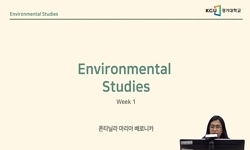The purpose of this study was to survey the teacher's recognition of science teaching environment for developing student's creativity in elementary schoo. For this purpose, we asked some questions to elementary school teachers: 20 item-questionnaire w...
http://chineseinput.net/에서 pinyin(병음)방식으로 중국어를 변환할 수 있습니다.
변환된 중국어를 복사하여 사용하시면 됩니다.
- 中文 을 입력하시려면 zhongwen을 입력하시고 space를누르시면됩니다.
- 北京 을 입력하시려면 beijing을 입력하시고 space를 누르시면 됩니다.

창의력 계발을 위한 초등학교 교사의 과학수업환경 조사 = An Investigation on the Teacher's Teaching Environment for Developing Student's Creativity in Elementary School
한글로보기https://www.riss.kr/link?id=A40122537
- 저자
- 발행기관
- 학술지명
- 권호사항
-
발행연도
2003
-
작성언어
Korean
- 주제어
-
KDC
407.05
-
등재정보
KCI등재후보
-
자료형태
학술저널
- 발행기관 URL
-
수록면
223-237(15쪽)
-
KCI 피인용횟수
2
- 제공처
-
0
상세조회 -
0
다운로드
부가정보
다국어 초록 (Multilingual Abstract)
The purpose of this study was to survey the teacher's recognition of science teaching environment for developing student's creativity in elementary schoo. For this purpose, we asked some questions to elementary school teachers: 20 item-questionnaire was given to 380 teachers who work in the region of Gyeonggi province. The queries which composed of 20 questionaries with two main factors- such as psychological and physical circumstances and each main factor composed of 10 subfactors. The results of the study are as follows: In the psychological environments, most of teachers are positive recognition on the subfactors such as the conditions of teaching, liberty of experiment, self-reliance and confidence building, curiosity inducements, but are negative on the cooperation, creative work, teachers' induction of interests, and scientific attitude in science class. In the physical environment, most of teachers have negative recognition such as free use of experimental materials, free reporting, scientific environment, free movement of position, improvement of the institutionalization, employment of multi-media system, breeding and culturing of living organisms, which means that the improved educational environment is needed for children to use it freely. On the other hand, most of the administrative group (92.1% of teachers) are acceptive in all the factors of educational environment, such as, for example, psychological and physical environment could be designated that the importance of educational environment have been recognized. With these results seemed to indicate that nearly all of teachers recognize the importance of the educational environment of science class, struggle for improving the educational environment of science class which closely related with the improvement of children's creativity.
동일학술지(권/호) 다른 논문
-
제7차 초등학교 과학과 교육과정의 견학 및 탐방 학습자료 개발 대상으로서 서부 경남지역의 화석 등 광물 문화재
- 한국초등과학교육학회
- 서승조
- 2003
- KCI등재후보
-
제6차와 제7차 교육과정의 슬기로운 생활 교과서 삽화 비교 분석
- 한국초등과학교육학회
- 송판섭
- 2003
- KCI등재후보
-
대도시와 중소도시에서의 초등발명교육 현황 비교 및 개선 방안 모색
- 한국초등과학교육학회
- 서혜애
- 2003
- KCI등재후보
-
- 한국초등과학교육학회
- 김영호
- 2003
- KCI등재후보
분석정보
인용정보 인용지수 설명보기
학술지 이력
| 연월일 | 이력구분 | 이력상세 | 등재구분 |
|---|---|---|---|
| 2026 | 평가예정 | 재인증평가 신청대상 (재인증) | |
| 2020-01-01 | 평가 | 등재학술지 유지 (재인증) |  |
| 2017-01-01 | 평가 | 등재학술지 유지 (계속평가) |  |
| 2013-01-01 | 평가 | 등재학술지 유지 (등재유지) |  |
| 2010-01-01 | 평가 | 등재학술지 유지 (등재유지) |  |
| 2008-01-01 | 평가 | 등재학술지 유지 (등재유지) |  |
| 2005-01-01 | 평가 | 등재학술지 선정 (등재후보2차) |  |
| 2004-01-01 | 평가 | 등재후보 1차 PASS (등재후보1차) |  |
| 2003-01-01 | 평가 | 등재후보학술지 선정 (신규평가) |  |
학술지 인용정보
| 기준연도 | WOS-KCI 통합IF(2년) | KCIF(2년) | KCIF(3년) |
|---|---|---|---|
| 2016 | 1.21 | 1.21 | 1.35 |
| KCIF(4년) | KCIF(5년) | 중심성지수(3년) | 즉시성지수 |
| 1.34 | 1.28 | 1.783 | 0.5 |




 KCI
KCI KISS
KISS





